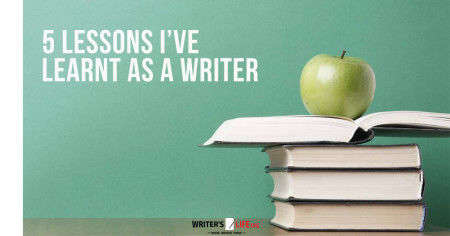- How To Tackle Jealousy In Creative Writing
- Common Submission Mistakes
- How To Stop Your Blog Becoming Boring
- The One Thing Every Successful Writer Has In Common
- How To Make Yourself Aware Of Publishing Scams
- Why Almost ALL Writers Make These Grammar Mistakes At Some Point
- 5 Tips For Authors On How To Deal With Rejection
- Top Mistakes to Avoid When Writing a Novel
- How to Avoid Common New Writer Mistakes
- 10 Mistakes New Fiction Writers Make
Get Rid Of Imposter Syndrome And Be A Confident Writer
Do you know what imposter syndrome is? If you are a writer, the answer is probably yes.
For those that aren’t sure, imposter syndrome is where you continuously doubt your expertise and ability, no matter what happens. You get a promotion? You feel like there might have been a mistake. You stick to your diet, and everyone tells you how great you look? You can’t quite believe them. Your book gets published? You still mutter about how terrible you are at writing to anyone who will listen.
Imposter syndrome should not be confused with modesty. Imposter syndrome can be draining and have a hugely negative impact on our lives. While no one wants to be that person puffed up with delusion who thinks they are the greatest writer in the world, having zero confidence, and the inability to celebrate your achievements is not going to be good for your career, or your wellbeing!
So how do you get rid of imposter syndrome and become a confident writer? It is not easy. But it is necessary to get distance from that self-distorting image of being a failure.
Sure it may be impossible to be completely rid of that inner self-critic - but if you can use niggles of self-doubt and uncertainty to try and improve and learn then they become positive, motivating factors rather than negative, destructive ones.
Next time you are feeling a bout of imposter syndrome coming on, why not try one of these?
Be helpful
Helping people solve problems is a fantastic way to gain authority and built up your confidence. You have readers, an audience who wants something from you, whether that is to be entertained or to learn a new skill.
Whatever you are writing about, think about your motivation for doing so - what are you hoping to give your audience? If you can pinpoint and work towards that then not only will you receive positive feedback, but also see tangible results. Similarly, if you share your skills, you will see how they are helping other people.
Set up a writing workshop or write a blog - sharing what you know will help you see that you have an authoritative voice and one that people can learn from.
Finish something
Many writers feel that they can’t call themselves writers until they have finished their novel. But writing a novel is a mammoth task and can take years to complete. Why wait to get that satisfaction? Write short stories, a play, an article, a poem. The more finished pieces of writing you have under your belt, the more you will feel as though you are a writer. If you can get these shorter pieces published too, your confidence will soar!
Reassure yourself
OK so while it’s not great to revel in the failures of others, sometimes learning about how now famous authors struggled when they first started out can actually be very reassuring.
“You have no business being a writer and should give up.” was the (very harsh) advice to Zane Grey. He ignored them and there are now hundreds of millions of copies of his books in print.
“Don’t give up your day job” was what J.K.Rowling was told by her publisher, Bloomsbury, when Harry Potter and the Philosophers Stone first went to print (having been rejected 12 times previously) - we are pretty sure she doesn’t moonlight in a cafe to make ends meet now!
After five rejections L.M. Montgomery decides to leave her debut novel in a hat box. Two years later she gives it another go, gets a publisher for Anne of Green Gables and sells over 50 million copies.
Think about that next time you feel uncertain or want to give up. Without determination and self-belief, these now very famous and celebrated writers wouldn't have been discovered.
Realise what you have achieved
You don’t have to be a best-selling author to be a good writer. You don’t have to have had anything published, have an agent or even have finished your book.
What writers must realise is that if they are working and if they are trying, then that’s all that they need. They must not shy away from it.
Be proud of who you are and what you do. In every career, people work towards their unique goals. Having goals is the way we move forwards, but not having achieved them (yet) doesn’t make you an imposter or a fraud.
If you are writing, you are a writer. End of story.




















